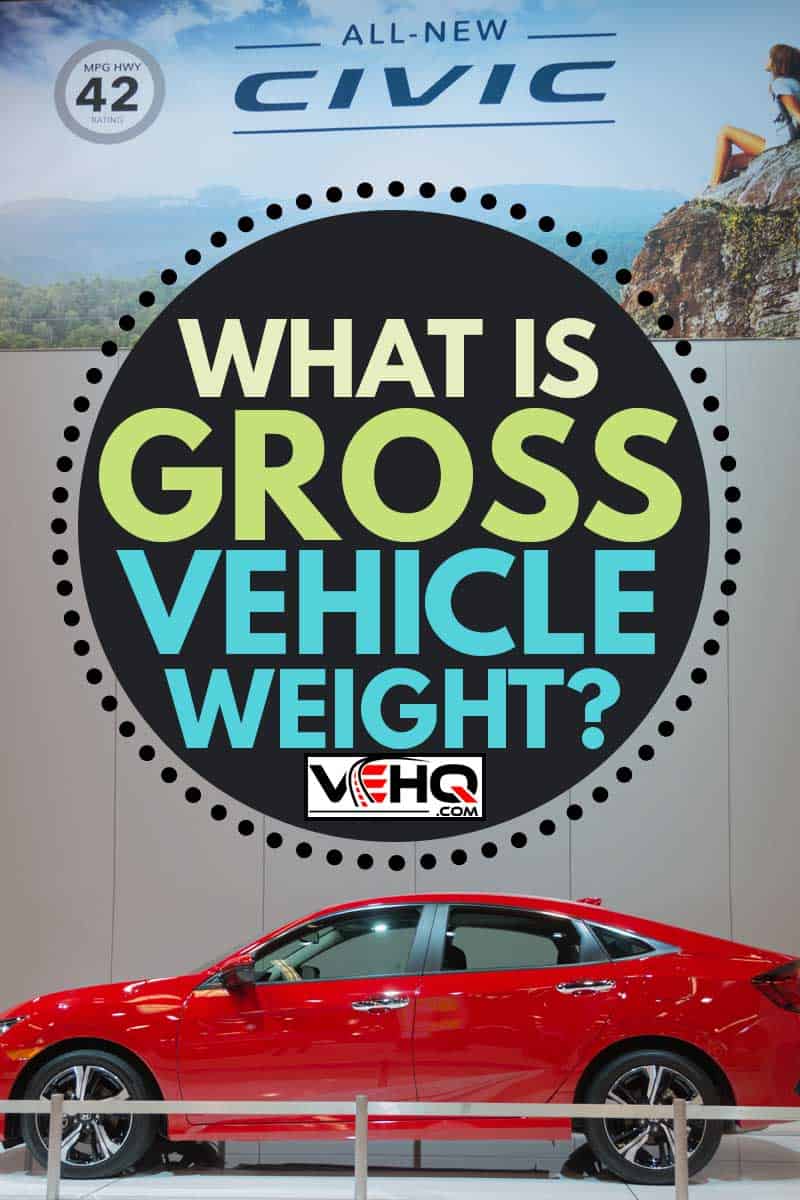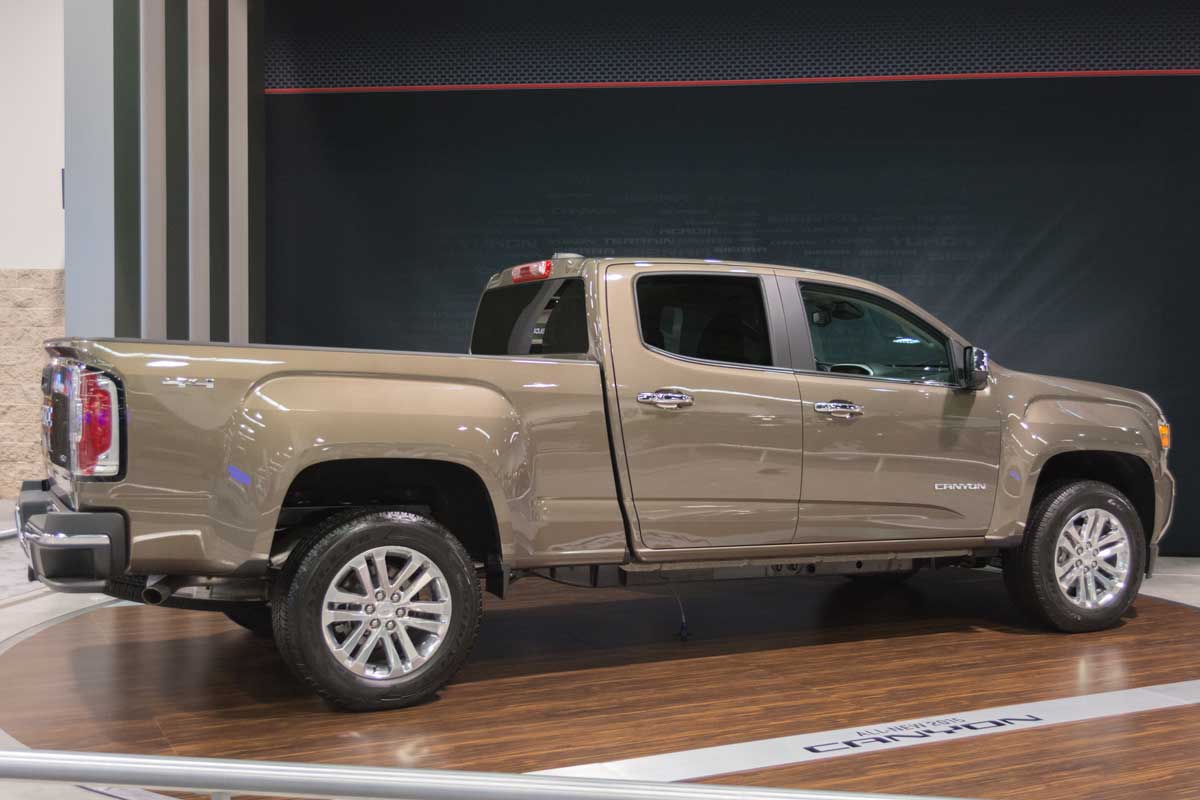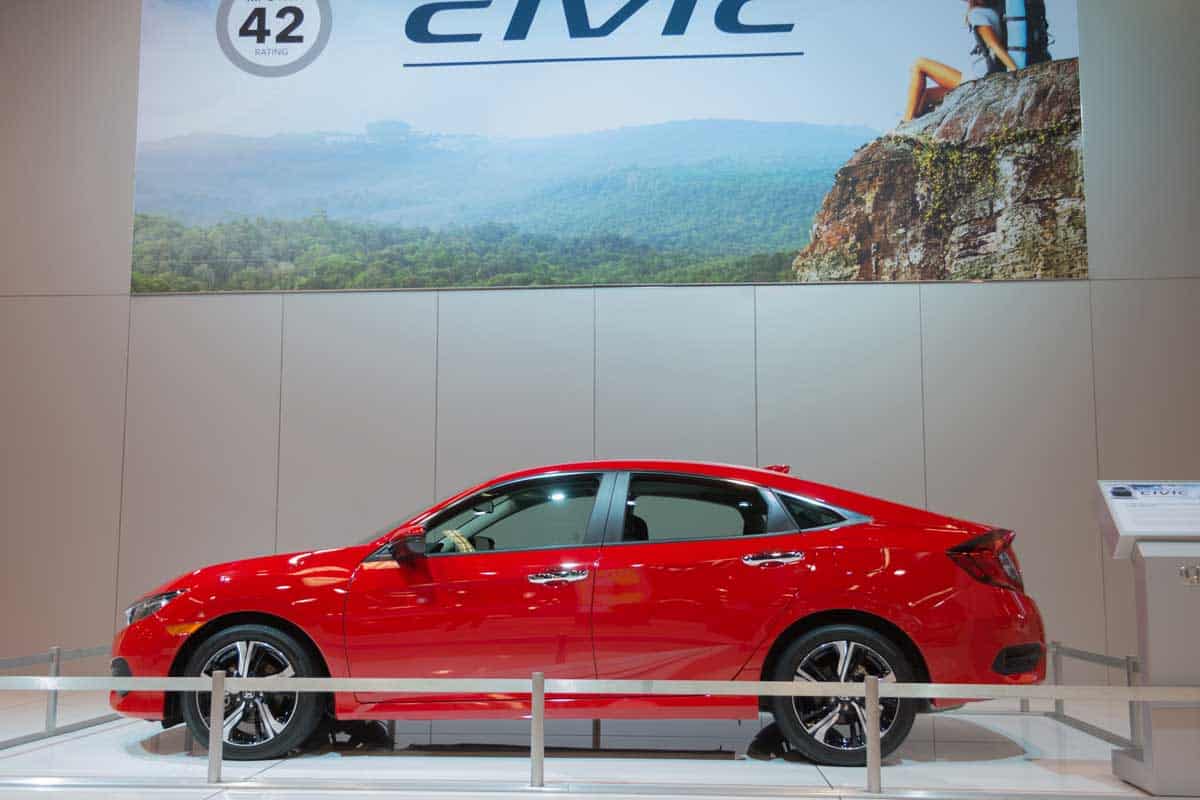 As a vehicle owner, you may come across the term gross vehicle weight. Many have no idea what this term means or how it can affect your driving experience. We researched this topic and found an answer that'll offer some clarity.
As a vehicle owner, you may come across the term gross vehicle weight. Many have no idea what this term means or how it can affect your driving experience. We researched this topic and found an answer that'll offer some clarity.
A vehicle's gross vehicle weight, or GVW, refers to its total weight, including cargo, the driver, and passengers. Due to this, the number will vary depending on passengers and items being added or subtracted from your vehicle.
Drivers will need to about this critical number to ensure their vehicle's weight is evenly distributed. Our following sections will discuss everything about the GVW to make sure your vehicle never becomes overloaded.
How to Tell My Vehicle's Gross Vehicle Weight?
Determining your vehicle's gross vehicle weight isn't a tricky process. This number will vary depending on your vehicle's cargo. This aspect makes it different than other vehicle terms like gross vehicle weight rating or curb weight.
You'll have to keep track of these variables when thinking about this vital piece of information. It's the only way to get a proper estimate of your vehicle's GVW. The actual process will consist of following these three steps:
Step 1
Locate your car's owner's manual or go onto the manufacturer's website. Once there, find the curb weight (empty weight) of your vehicle.
Step 2
Find the gross vehicle weight rating, or GVWR, on your vehicle's door pillar located on the driver's side.
Step 3
Add the vehicle's curb weight to the combined weight of your passengers, cargo, and driver. This figure will be your vehicle's gross vehicle weight. You should then check to ensure your car isn't over the GVWR before using it. To learn more about how to determine how much weight a car can carry, check out our previous post here.
What is the Difference Between GVW and GVWR?
Understanding the difference between gross vehicle weight and gross vehicle weight rating is vital for any responsible driver. A vehicle's GVW refers to its total weight. Everything inside of the car from passengers to engine parts is accounted for in this figure. It's a number that's always changing due to various factors.

The GVWR is something completely different. This number refers to the highest load your particular vehicle can carry without incident. It's a figure that's assigned by the manufacturer and will not change due to any external factors.
The rating or figure will account for drivers, every car component, fuel, cargo, passengers, and a long list of other things. It's an essential rating for a driver to know. This rating becomes especially vital for drivers who move heavy cargo and drive in congested areas.
If you don't keep this figure in mind, physical and engine damage could occur. It ends up being a huge safety risk to the driver and everyone driving around them. A drive should know this number in order to make sure their vehicle never crosses the threshold of what is safe.
Let's look at the GVWR figures of some popular vehicles out there on today's market. These examples should provide a better idea of what to expect from certain cars when it concerns GVWR:
- Honda Civic: 3,671 lbs to 3,924 lbs
- Nissan Sentra: 3,957 to 4,001 lbs
- Hyundai Elantra: 3,880 to 4,057 lbs
- GMC Sierra: 6,800 Ibs to 11,500 Ibs
- Nissan Frontier: 4,700 lbs to 5,816 lbs
- Toyota Tundra: 6,900 Ibs to 7,200 lbs
- GMC Canyon: 5,400 lbs to 6,000 lbs
- Honda Ridgeline: 5,710 lbs to 6,019 lbs
If you're a little confused about the ranges, this comes from each vehicle having different styles. People looking to increase their GVWR can buy certain variations with features for this purpose. It's just another way drivers can help determine what particular vehicle fits their needs perfectly.
What is the Curb Weight of a Vehicle?
A vehicle's curb weight is the overall mass of its standard equipment and necessary operating consumables like coolant, motor oil, transmission oil, etc. This figure doesn't account for cargo or passengers as it's your vehicle's empty weight. In other words, what the vehicle weighs without anything within it besides what it needs to function.

Once you do add in the cargo and passengers, the figure becomes a gross vehicle weight rather than a curb weight. Here are some popular examples of top-selling cars and their respective curb weights:
- Honda Civic: 2,762 lbs to 3,009 lbs
- Nissan Sentra: 3,045 lbs to 3,084 lbs
- Hyundai Elantra: 2,844 lbs to 3,131 lbs
- GMC Sierra: 4,915 Ibs to 9,615 Ibs
- Nissan Frontier: 3,779 lbs to 4,624 lbs
- Toyota Tundra: 5,170 Ibs to 5,680 lbs
- GMC Canyon: 3,937 lbs to 4,546 lbs
- Honda Ridgeline: 4,242 lbs to 4,515 lbs
What Happens if You Exceed GVWR?
Exceeding any determined limit for a car or truck isn't a smart move. These ratings are put into place to keep drivers and passengers safe.
Safety Issues
These vehicles are built to handle a certain weight or load. Some cars or trucks might not even move when overloaded with cargo or passengers. But this doesn't mean that a vehicle capable of moving can do it safely.
Overloaded vehicles often provide drivers with handling issues. These problems become even worse in rainy or other poor weather conditions. For instance, an overloaded truck driving on snowy backroads would get a lot less traction, making it harder to brake. This situation could lead to a tragic accident.
But even with normal conditions, the extra weight of an overloaded vehicle makes slowing down more difficult, which can also result in higher crash rates.
Road Damage
Driver safety isn't the only reason to avoid driving a vehicle exceeding its GVWR. There are plenty of other reasons, such as damaging roads. This issue is mainly for larger vehicles out there, but overloading them can cause severe road damage.
Higher Cost to Drive
Overloading a vehicle can also place a heavy burden on your wallet. A vehicle driving around with a load exceeding its GVWR will put stress on its internal system, including both its transmission and suspension.
As a result, these systems may require more repairs and maintenance. The extra pressure brought onto them will make the systems break down quicker. This situation only means a driver will end up paying more for repairs than ever.
You'll pay more when it comes to insurance, as well. A driver who survives an accident involving their overloaded vehicle will likely be held responsible. This can result in paying for the repairs of the other driver's car and you may even face criminal charges.
After reading this article, you should have a better idea of everything about gross weight rating. You'll now have all the info needed to make a smart decision about this factor when buying your next car.
But if you do have more questions, please let us know in the comment section. We'd love to help out in any way possible. Thanks for reading!
